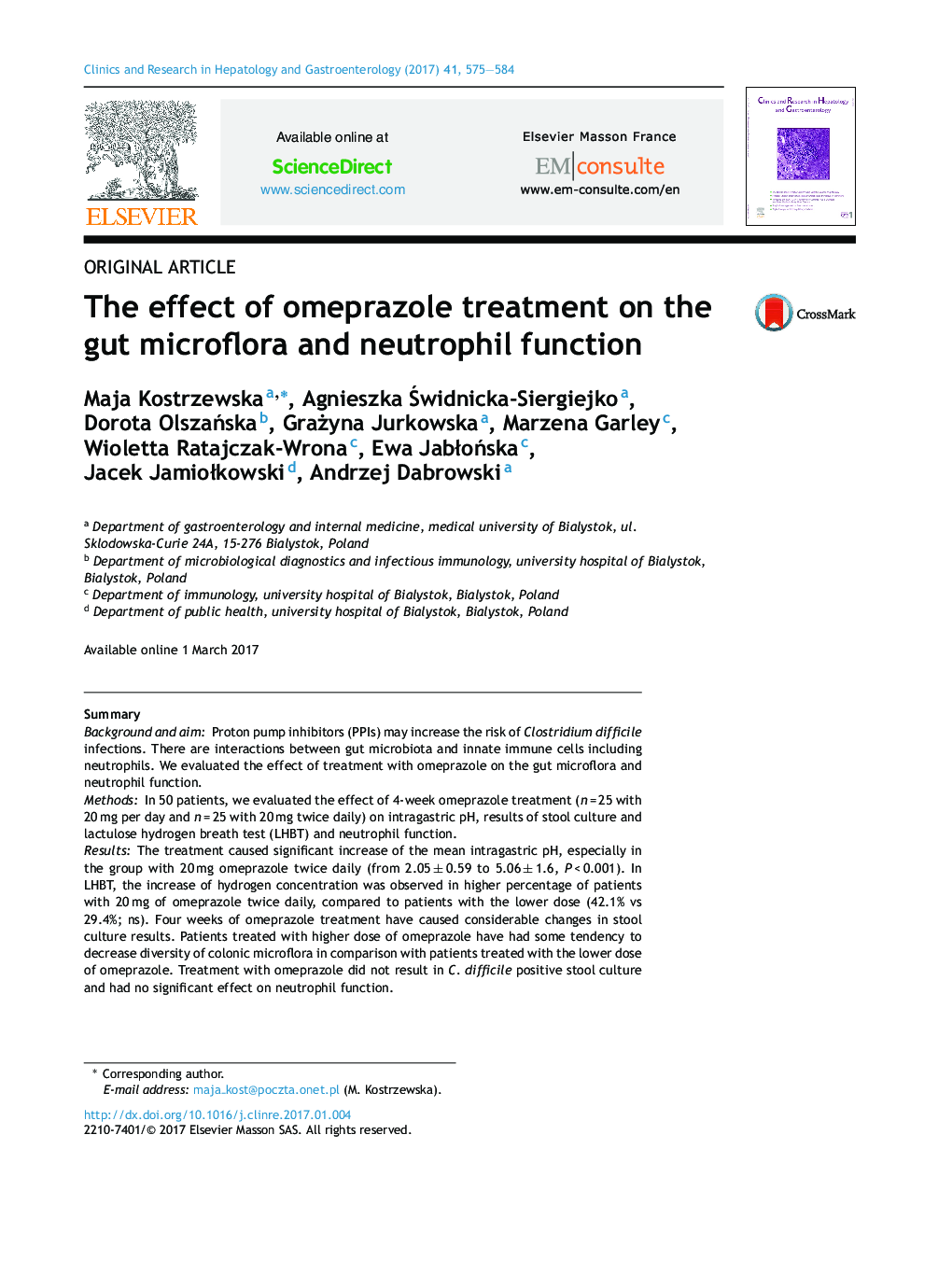| Article ID | Journal | Published Year | Pages | File Type |
|---|---|---|---|---|
| 5657744 | Clinics and Research in Hepatology and Gastroenterology | 2017 | 10 Pages |
SummaryBackground and aimProton pump inhibitors (PPIs) may increase the risk of Clostridium difficile infections. There are interactions between gut microbiota and innate immune cells including neutrophils. We evaluated the effect of treatment with omeprazole on the gut microflora and neutrophil function.MethodsIn 50 patients, we evaluated the effect of 4-week omeprazole treatment (n = 25 with 20 mg per day and n = 25 with 20 mg twice daily) on intragastric pH, results of stool culture and lactulose hydrogen breath test (LHBT) and neutrophil function.ResultsThe treatment caused significant increase of the mean intragastric pH, especially in the group with 20 mg omeprazole twice daily (from 2.05 ± 0.59 to 5.06 ± 1.6, P < 0.001). In LHBT, the increase of hydrogen concentration was observed in higher percentage of patients with 20 mg of omeprazole twice daily, compared to patients with the lower dose (42.1% vs 29.4%; ns). Four weeks of omeprazole treatment have caused considerable changes in stool culture results. Patients treated with higher dose of omeprazole have had some tendency to decrease diversity of colonic microflora in comparison with patients treated with the lower dose of omeprazole. Treatment with omeprazole did not result in C. difficile positive stool culture and had no significant effect on neutrophil function.ConclusionsOmeprazole treatment have caused considerable changes in stool culture results. Patients treated with the higher dose had some tendency to decreased diversity of colonic microflora and towards changes in fermenting bacteria of the gut. The potential effect of omeprazole on gut microflora does not depend on neutrophil function deterioration.
